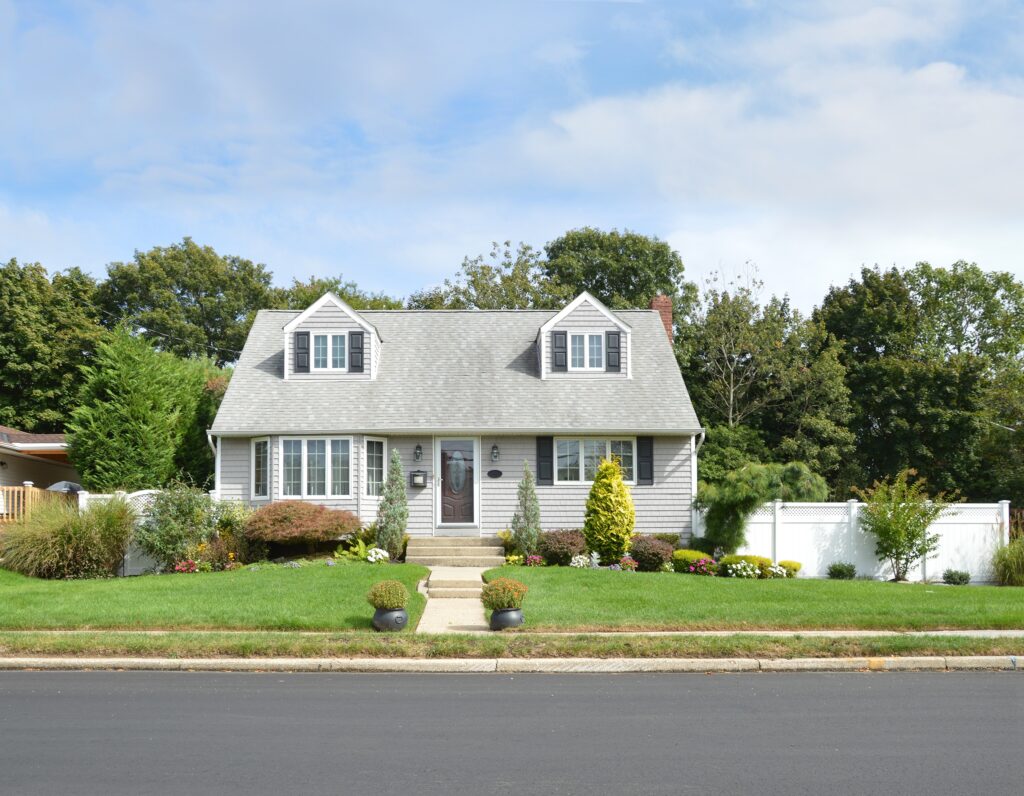October 23, 2024
Mortgage rates are much higher than they were just a few years ago, making monthly house payments go up. And there’s still a shortage of homes on the market, pushing prices higher in the first place.
But here’s the thing: For many people, now is still a good time to buy a home.
“Real estate, historically, is a good investment,” said Kim O’Donoghue, assistant vice president of real estate sales for Honor Credit Union, a member-owned financial institution with 28 member center locations in southwest Michigan and the Upper Peninsula.
“Rents have risen significantly in recent years, too, because landlords’ costs have gone up. At least with owning your home, you’re building equity and you’ve got something you can get out of it.”
Let’s take a closer look at what’s going on in the housing market and whether it makes sense for you to buy a home right now:
Home Prices Continue To Rise
Five years ago, you might have thought that the housing market was over-inflated. After all, from 2014 to 2019, the average sales price of homes in Michigan surged more than 30%. A seemingly wise course of action might have been to wait for prices to stabilize and come back down before buying a home.
But guess what? From 2019 to 2024, the average sales price of homes in Michigan has increased another 65%!
Since there are many more people looking to buy than the number of homes going up for sale, it’s almost certain that prices will continue to rise over the next several years. In fact, with prices rising 5% or more per year, you can expect a house that’s worth $250,000 today to be worth upwards of $260,000 next year and around $275,000 the year after that.
“The inventory shortage is expected to continue for many years to come,” O’Donoghue said. “And whenever you have a supply and demand imbalance, it’s going to lead to a rise in prices. It’s still a seller’s market and probably will be for a long time.”

Mortgage Rates Have Returned To Normal
For much of the past 10 to 15 years, 3% mortgage rates were normal. But if you go back over the last three decades, the average 30-year fixed-rate mortgage is between 6 and 7%.
That’s exactly where rates are these days.
“Are rates higher than we saw in 2021? Yes,” O’Donoghue said. “But, to be honest, those are rates we might not ever see again. Rates that we’re seeing today really are more normal.”
What higher mortgage rates mean is that your monthly payment on a home would be higher than if you borrowed the same amount of money three years ago. But compared to mortgages that your parents or grandparents might have had in the 1980s when rates spiked as high as 18%, today’s rates aren’t bad. They’re just normal.
Why It Might Make Sense For You To Buy A Home Right Now
With home prices up and mortgage rates back to normal, monthly home payments can be quite a bit higher than if you bought a home just a few years ago. In fact, that’s part of the reason there are so few houses going up for sale: Current homeowners with a 3% mortgage don’t want to sell and then end up having a 7% mortgage on their next home.
So then, with all the cards seemingly stacked against homebuyers, why might now be the right time to purchase? Here are three reasons:
- Instead of paying more and more rent each year, you can buy a home with a fixed-rate mortgage that will keep your monthly payment the same for the next 15 or 30 years.
- As your home increases in value in the coming years, your home equity goes up, too. When the $250,000 home you buy now is worth $350,000 in 10 years, that $100,000 difference is money in your pocket.
- Industry experts expect that mortgage rates will hold fairly steady over the next 12 months. But if you buy a home and then rates do go down a significant amount, you can always refinance. Many people don’t keep the same mortgage for more than five to seven years anyway. Hence, the saying, “date the rate and marry the house.”
Why It Might Not Make Sense For You To Buy A Home Right Now
Even though now may be a good time for many people to buy a home, that doesn’t mean it’s the right time for everyone. For example, if you already plan to move somewhere else in the next few years, you may be better off in the short term by renting rather than buying. While price appreciation over the long haul can add up for homeowners in a big way, just a couple years of increased value might not be enough to offset the closing costs when you buy and sell a home.
It’s also important to know whether you can handle all the costs of homeownership in your budget. Even though a fixed-rate mortgage keeps your monthly payment the same from year to year, there are other costs to consider.
“Taxes will go up every year. Homeowner’s insurance will go up. Utilities typically increase,” O’Donoghue said. “The costs never go down, so if it’s not in your budget then it’s definitely not a good time to buy.”
Who To Call For Guidance
Honor Credit Union has been a local provider of home loans in southwest Michigan for nearly a century, and it’s a great first call to make if you’re thinking about buying a home. The mortgage professionals there can review your personal situation and help you decide if now is the right time to buy. They also can help you sort through different mortgage options and get you pre-qualified so you can be ready to make an offer on the home you want as soon as you find it.
Honor Credit Union has more than two dozen member locations in the Lower Peninsula, from the lakeshore to Battle Creek and from Grand Rapids to the Indiana state line. Honor Credit Union has three branches in the Upper Peninsula, too.
“We pride ourselves on being local,” O’Donoghue said. “We live in the markets where we do business. We see our customers at the grocery store. We’re at the football games on Friday nights passing out our foam footballs.”
contact us
Our team is here to help, give us a call at 800.442.2800, or schedule an appointment with an expert to talk about your options today.
More To Explore

Your Guide To Short-Term Home Mortgage Loans
The most common term for a home loan is 30 years, but a short-term mortgage might be worth looking into

Should You Build Or Buy a House? Consider These Things
We’ve outlined the essential pros and cons to consider before purchasing, or building your new home so you can decide

5 Questions About Home Equity Answered
What’s the difference between a home equity loan and line of credit? Honor Credit Union has answers to common home



